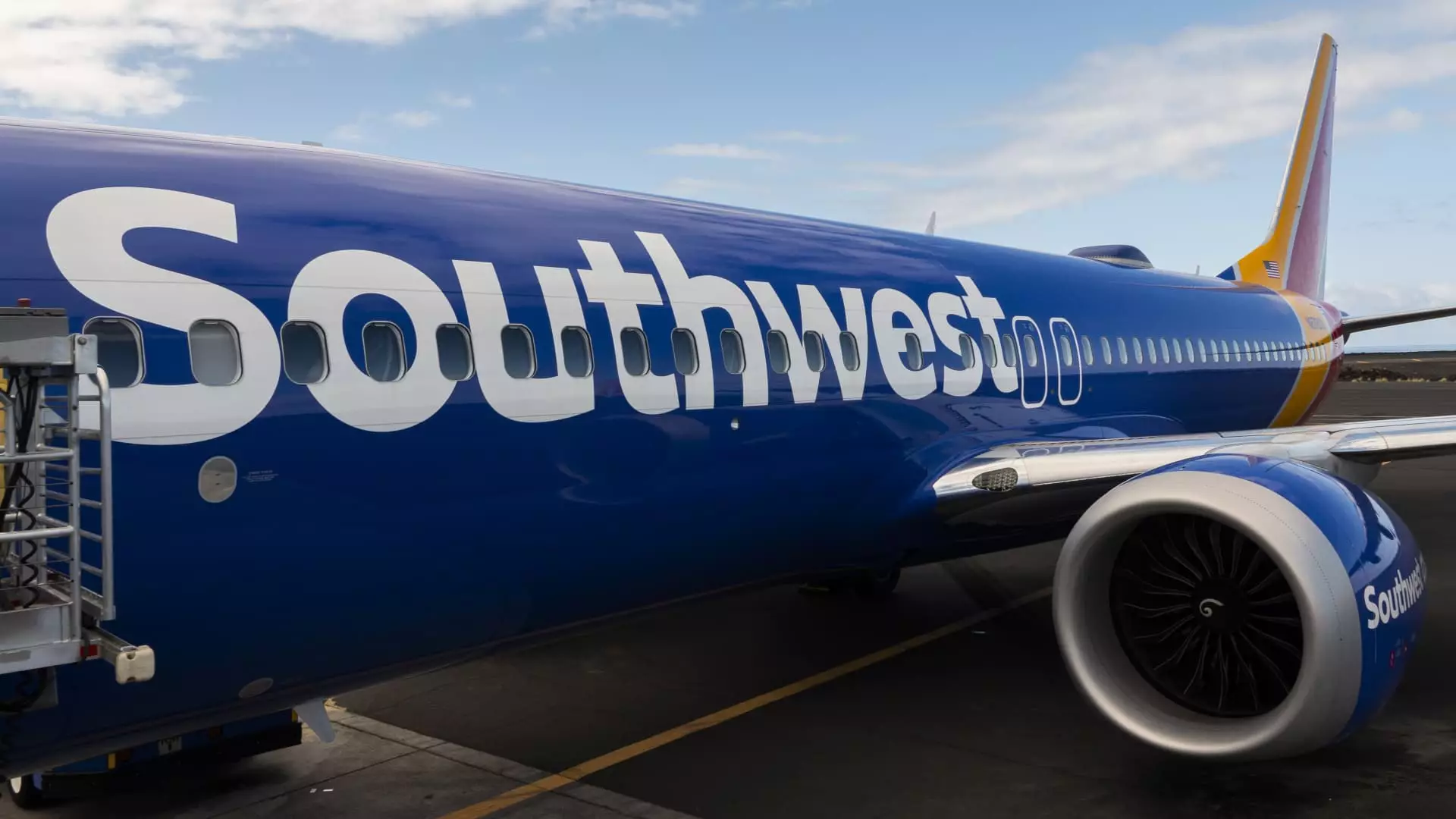Southwest Airlines shares took a hit in premarket trading, dropping approximately 4% following the carrier’s revised second-quarter revenue forecast. The airline cited changing booking patterns as the reason for the adjustment, leading to a significant decline in expected revenue per available seat mile compared to the previous estimate.
Financial Outlook for the Second Quarter
The revised forecast indicates a potential 4% to 4.5% decrease in revenue per available seat mile for the second quarter, a stark contrast to the initial projection of a 1.5% to 3.5% decline. Additionally, Southwest Airlines anticipates a rise in unit expenses, excluding fuel, by as much as 7.5% compared to the same period last year. The capacity is also expected to increase by up to 9%, deviating from the original expectation of flat growth.
The airline industry as a whole is facing challenges due to the surge in passenger numbers, which is offset by higher costs and growth in capacity. This imbalance has put pressure on fares and profits across the industry. While competitors like Delta and United are benefiting from an uptick in international travel and increased willingness of travelers to pay premium prices for enhanced services, Southwest Airlines is struggling to keep up with market demands.
Southwest Airlines is currently under scrutiny from activist investor Elliott Management, which has called for a change in leadership by replacing CEO Bob Jordan and Chairman Gary Kelly. The hedge fund’s assessment is that the company is underperforming and requires fresh leadership to drive growth. Despite the pressure, Southwest Airlines has defended its current leadership team and hinted at potential revenue-generation initiatives such as seating assignments and premium seating options.
Southwest Airlines’ CEO, Bob Jordan, has emphasized the importance of adapting to changing customer preferences and needs. While the airline has traditionally operated on a straightforward business model that has yielded profitability for decades, the evolving market dynamics necessitate a shift towards more customer-centric strategies. Initiatives like offering premium seating options signify a departure from the airline’s simplistic approach but may be essential for long-term sustainability.
Southwest Airlines’ decision to revise its revenue forecast for the second quarter has had a direct impact on its share price and market perception. The challenges posed by changing booking patterns and increased expenses highlight the need for strategic adaptability and innovation in a competitive industry landscape. As the airline navigates through these obstacles, it will be crucial to strike a balance between traditional operating principles and evolving consumer demands to ensure sustained growth and profitability.



Leave a Reply